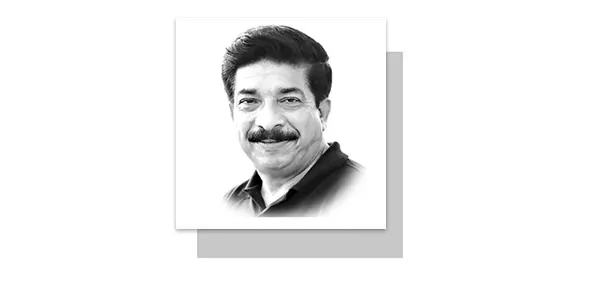FOLLOWING the interim judgment delivered by the International Court of Justice (ICJ) in South Africa’s genocide case against Israel, we are witnessing the emergence of a new trajectory in global power equation. The ICJ’s confirmation that South Africa’s charge against Israel under the Genocide Convention is “plausible” marks a significant turning point. The court’s ruling, which asks Israel to take all necessary measures to prevent acts of genocide in Gaza, underscores the urgency of the situation. While the court has refrained from explicitly calling for an immediate ceasefire, it has endorsed most of the provisional measures proposed by South Africa. However, implementing these measures while fulfilling obligations under the Genocide Convention presents a challenge for supporter of Israel in the West, necessitating a reconsideration of their approach to the conflict. As the world watches, the imperative for a lasting ceasefire grows ever more pressing with the ICJ’s judgment highlighting the urgent need for a peaceful resolution to the crisis in Gaza. While a final verdict may be years away, the fact that the International Court of Justice has recognized the validity of some of South Africa’s claims marks a significant milestone. This development forces the world to confront uncomfortable truths about the plight of Palestinians and the conduct of the Israeli government.
This judgment from The Hague has not explicitly mandated a Gaza ceasefire, but its directives against genocide incitement underscores urgent protection needs for Palestinians. It signals recognition of the dire situation in Gaza, hinting at potential devastation. Israel’s obligation to adhere to international conventions, emphasized by the Hague’s jurisdiction, demands immediate compliance and evidence preservation. Concurrently, Hamas is not absolved, with the ICJ rightly demanding the release of hostages. While disappointment may linger over the absence of a ceasefire decree, The Hague’s verdict marks a pivotal step toward addressing the plight of Palestinians and holding accountable all parties involved in the conflict. Israel’s status as a Geneva Conventions signatory places it under the International Court of Justice’s purview. It is imperative for Israel to promptly adhere to the court’s directives and safeguard evidence pertinent to the case. Such compliance is crucial not only for upholding international law but also for fostering trust and advancing the cause of peace in the region. It is incumbent upon all parties involved to prioritize humanitarian concerns and work towards a just and lasting resolution to the conflict. Israel’s disdain for the International Court of Justice (ICJ) in The Hague won’t alter the historic significance of the provisional measures it ordered. Despite initial dismissals like “Hague Shmague” from Israel’s Security Minister Itamar Ben-Gvir, the mandates for Israel to prevent genocidal acts, curb incitement to genocide and report its actions within a month carry weighty implications for the future.
While the court’s enforcement capabilities remain limited, these measures mark a defining moment with far-reaching repercussions, shaping not just the immediate future but the trajectory of peace and justice for years to come. Israel’s response will shape perception of its commitment to international legal standards and peace in the turbulent region. The absence of enforcement mechanisms doesn’t diminish the political discomfort for Israel or its staunch defenders. The recent rulings, endorsed by overwhelming majorities, including Israel-appointed judge, Aharon Barak, signal a major shift in attitude toward Israel’s actions. Governments previously dismissive of South Africa’s case must now reckon with the evidence presented. The testimony revealing “extensive and blatant incitement to genocide and expulsion and ethnic cleansing” is undeniable. Yet, many governments have hesitated to confront this uncomfortable truth head-on. Netanyahu and his government often resort to aggressive tactics when faced with criticism. Such an obstinate stance risks further isolating Israel on the global stage. Benjamin Netanyahu’s right-wing government is primarily driven by domestic considerations, shaping its response to international challenges. The Israeli government’s rejection of the court’s orders reflects a troubling pattern. By denying the existence of genocidal acts, Netanyahu aims to evade accountability. However, Israel’s allies cannot ignore their commitment to the international legal framework.
However, it has become increasingly evident that Netanyahu’s approach is untenable in the face of mounting international scrutiny. Western nations, such as the UK and the US, must reconsider their dismissal of South Africa’s case. Efforts to negotiate a ceasefire and facilitate aid delivery in Gaza are underway, emphasizing the urgency for governments to leverage their influence to enforce the ICJ’s mandate. Before the judges’ interim ruling, the spokesperson of the US National Security Council preemptively labelled South Africa’s case at the ICJ as “devoid of merit, counterproductive and lacking any factual basis.” The hasty dismissal of South Africa’s case, without awaiting the court’s ruling, revealed a bias in Washington towards Israel and undermined the pursuit of justice. Concurrently, Netanyahu’s denial of Palestinian plight further exacerbates the situation, highlighting a troubling pattern of selective justice. Beyond the immediate conflict, this approach sets a dangerous precedent, undermining the credibility of international law and risking broader implications for global justice. The failure to condemn human rights abuses and prioritize peace undermines stability and fosters an environment ripe for continued conflict.
It is imperative for all parties to uphold the principles of fairness and accountability to ensure all path toward lasting peace and stability in the region. In challenging Israel’s actions, South Africa has catalyzed a profound reckoning within the global justice system. This landmark case represents the bold defiance of a Global South nation against the entrenched power dynamics of the colonial West. By holding Israel accountable for its ongoing atrocities against an Indigenous population, South Africa has confronted the historical complicity of Western nations in perpetuating injustice and dispossession. Through this trial, the enduring legacy of colonialism, marked by oppression, faces scrutiny on the world stage. South Africa’s courageous stance challenges the prevailing narrative and underscores the imperative for justice and accountability in addressing long-standing grievances.
—The writer is political analyst, based in Karachi.
Email: immhza6@gmail.com
views expressed are writer’s own.










